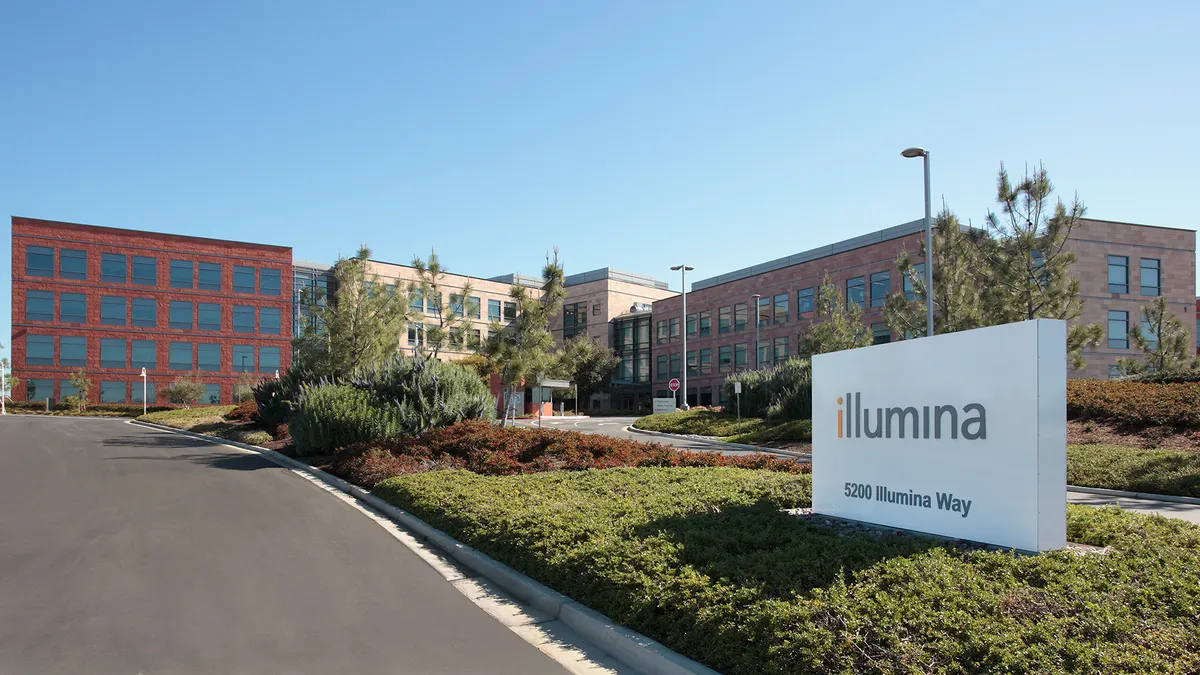Dive Brief:
-
The European Commission has opened an in-depth, three-month investigation into Illumina's planned takeover of Grail, a deal valued between $7 billion to $8 billion.
-
European officials are probing the deal because of concerns it “may reduce competition and innovation in the emerging market for the development and commercialization of cancer detection tests based on sequencing technologies." The U.S. Federal Trade Commission in March moved to block Illumina's takeover of Grail on similar grounds. However, FTC subsequently put on hold potential actions, as it takes a wait-and-see approach to the regulatory outcome in Europe.
- Illumina rebuffed the Commission’s latest arguments, calling the acquisition pro-competitive and vowing to work with European authorities to provide the information needed to get the deal done. Illumina CEO Francis deSouza warned in a statement that if the acquisition does not proceed Grail’s European rollout will be slower and "the cost will be measured in the unnecessary loss of life."
Dive Insight:
The Commission in April revealed plans to assess the acquisition of Grail in response to requests by seven European countries. Illumina responded by filing an action in the General Court of the EU challenging the EC’s jurisdiction to investigate the deal. The EC has now decided to open an in-depth investigation into the proposed takeover, following its preliminary investigation.
While the Commission has traditionally only reviewed mergers that cross revenue thresholds, it has identified a need to broaden its scope in recent years. The Grail takeover is being reviewed under an old but rarely used mechanism.
Illumina's dominance of the sequencing market is at the heart of the Commission's concerns. The Commission contends Illumina could use its status as the leading provider of sequencing systems used by liquid biopsies to "engage in vertical input foreclosure strategies." The Commission said Illumina could have "an economic incentive to foreclose Grail's rivals," adding that such actions would have a negative impact on the liquid biopsy market and European patients.
An Illumina statement affirmed its commitment to the takeover and said the probe reverses "decades of merger policy" and, with its focus on two U.S. companies, "leaves businesses around the world uncertain as to how the EU Merger Regulation will be applied in the future."
While questioning the change in policy, Illumina has also offered concessions. Illumina said it has "offered far-reaching structural and behavioral remedies to address any potential concerns." A recent Reuters report said Illumina has informally proposed concessions such as "contractual guarantees of equal and fair access to its sequencing and a commitment to drive down prices by more than 40% by 2025." The offer reportedly failed to appease the European Union.
The Commission now has 90 working days to reach a decision. The timeline means it could be late November, 14 months after Illumina disclosed the Grail takeover, before the Commission makes a decision.
Every month delay is costing Illumina money. The terms of the deal envisaged the consummation of the takeover by December 2020. Every month since then, Illumina has paid Grail $35 million. If the deal is not consummated by Dec. 20, 2021, Illumina will need to pay a $300 million termination fee and make a $300 million investment in Grail. The termination date is weeks after the Commission is set to reach a decision on the takeover.











